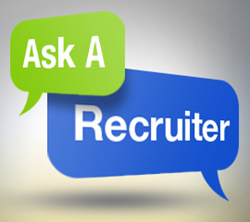 Listing volunteer efforts on your resume can seem a little tricky. And, some may wonder if it’s even worth it? We know there’s a lot to learn, and we want to help by answering your questions. Our very own industry experts at Express Employment Professionals have offered up helpful answers right here on the Movin’ On Up blog.
Listing volunteer efforts on your resume can seem a little tricky. And, some may wonder if it’s even worth it? We know there’s a lot to learn, and we want to help by answering your questions. Our very own industry experts at Express Employment Professionals have offered up helpful answers right here on the Movin’ On Up blog.
Question: How do recruiters view volunteer experience on a resume?
Answer: Recruiters are people, just like everyone else. To that end, each recruiter will probably view previous volunteer work in their own unique way. At the end of the day, most recruiters are paid by clients to find the best candidate based on skill sets that are defined by the client. If the skill sets are very specific, and experience crucial, volunteer experience most likely will play a small role in the recruiter’s decision to present a candidate or not. That being said, it’s still important to include.
In my experience, volunteerism can take center stage in other places during the hiring process. First, it can be a differentiator between yourself and another equally qualified candidate. Adding volunteer service tends to show how well-rounded a candidate is, or illustrates that they share time and abilities outside of the office. Often, for recruiters, making a great placement is about a culture fit or soft-skills fit, not solely based on past work titles. Volunteerism is a great way of illustrating your soft-skills to a recruiter or a hiring manager.
Additionally, if you are just entering the marketplace (think no experience or little experience) or you are changing seats in the marketplace (new industry, new specialized area, etc.), volunteerism can be a great way to show that even though you don’t have experience in a certain role or industry, you have picked up transferable skills while being a solid community member and giving back your time.
Finally volunteerism is a great conversation starter. If you’re interviewing with a company that is civic minded, and you’re passionate about volunteer work, share that enthusiasm during the interview. Employers in today’s marketplace want employees who get excited about working toward a goal bigger than themselves, and that’s what volunteering is all about!
Question: What are some tips for listing volunteer experience on a resume?
Answer: Unless you are new to the marketplace and volunteer work is the majority of your experience, I believe it’s best to keep it simple. List the organization, dates you’ve been associated, and possibly one sentence about the work you’ve been doing with the organization. When you can work in lessons learned from volunteering during the interview itself, it’s more impactful than listing volunteer experience on the resume.
If you’re someone who has lots of volunteer experience, don’t feel like you need to share every organization you’ve been a part of! In most cases, being affiliated with 10 or more civic organizations won’t necessarily gain you any more street cred than listing two or three. Pick the organizations in which you’ve invested the most time in, or the two or three that you’ve most recently been affiliated with.
Thank you to Joe Paquette from Express for providing the above answers!
Do you have a question about the job search, hiring, or recruiting process? Now’s your chance to have your question answered by industry professionals who find, interview, and hire people every day. Ask your question in the comments section below and check back soon to read what our experts have to say!






